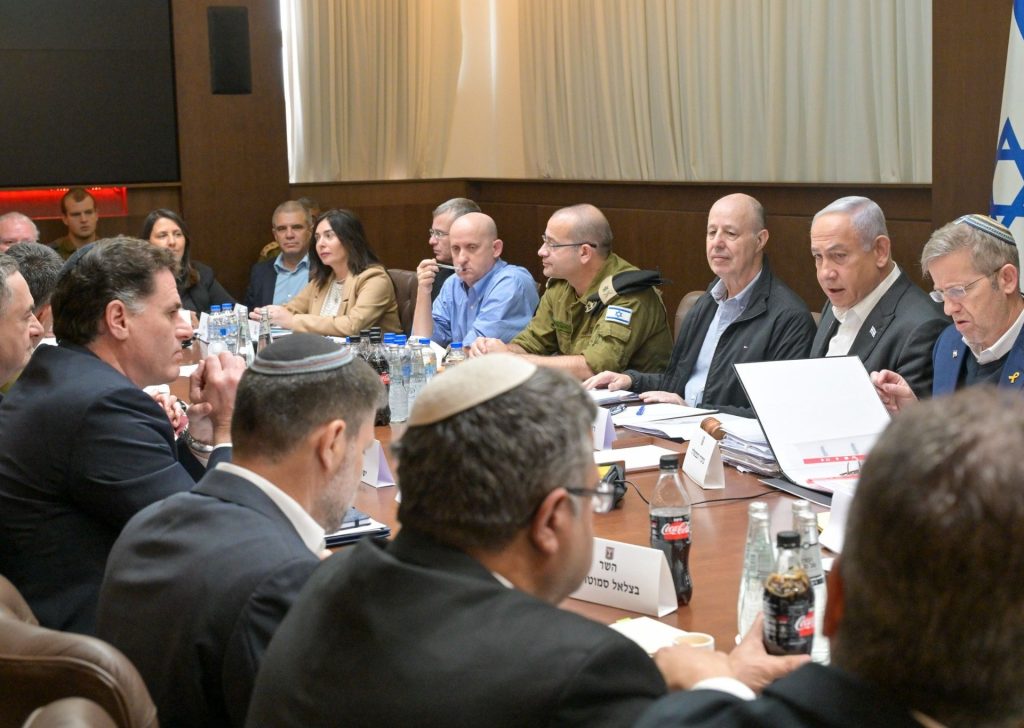Israeli Channel 13 reported that the government will approve tomorrow the recruitment of tens of thousands of reserve soldiers, following earlier approval of a plan to occupy Gaza, while mediators race against time seeking a new agreement.
The Israeli channel stated that the plan to expand the operation includes the use of heavy fire and conducting incremental operations in neighborhoods of Gaza City.
It added that senior Israeli army officers sharply criticized the upcoming military operation in Gaza, while Channel 12 quoted senior army officers saying the war is stuck and has become like a vehicle sinking in sand.
Meanwhile, Yedioth Ahronoth newspaper reported that all Israeli security chiefs rejected the plan to occupy the Gaza Strip during the security cabinet meeting on Friday, while the American Wall Street Journal confirmed the plan faces several challenges.
The newspaper indicated that the security cabinet meeting lasted 10 hours and witnessed a heated discussion during which security chiefs expressed varying degrees of opposition to the Gaza occupation, affirming the existence of “more suitable options” to achieve the same goals.
It confirmed that the meeting was a scene of disputes between Prime Minister Benjamin Netanyahu and Chief of Staff Eyal Zamir, and some ministers also confronted Zamir over his stance.
Israeli reports mentioned that Zamir described the Gaza occupation plan as a “strategic trap,” emphasizing it would exhaust the army for years and endanger the lives of prisoners.
According to Yedioth Ahronoth, National Security Council head Tzachi Hanegbi said during yesterday’s meeting that recent images of Israeli prisoners showing signs of emaciation and hunger suffering do not allow him to support the “all or nothing” plan, adding, “I am not willing to give up the chance to save at least 10 prisoners.. a ceasefire will enable us to try to reach an agreement regarding them.”
Meanwhile, the Wall Street Journal quoted Israeli officials saying that manpower shortage is among the main constraints facing Israel to control Gaza, explaining that retired Brigadier General Amir Avivi believes rapid progress will require several military teams comprising tens of thousands of soldiers, which led him to favor a more gradual operation reducing pressure on human resources.
It explained that Israeli reserve soldiers threatened not to return to fight in Gaza if called again, amid exhaustion and depletion experienced by the occupation army due to the prolonged war.
In this context, the Israeli Broadcasting Corporation said the United States and mediators are exerting pressure on Hamas and Israel to return to the negotiating table.
Kan Channel also reported on Saturday, citing informed sources, that Washington and mediators are pressuring Hamas and Israel to return to negotiations to stop the war in Gaza, which has witnessed extermination and starvation operations by Tel Aviv for 22 months.
Axios website also quoted a senior Israeli official saying the offensive plan on Gaza will not be implemented immediately, and no precise timetable has been set for the start of the operation, leaving more time to reach a diplomatic solution.
According to the senior Israeli official, Netanyahu spoke vaguely during the cabinet meeting, leaving the door ajar to halt the operation if negotiations resume to reach an agreement to end the war and release prisoners.
The decision to occupy Gaza was condemned by many organizations and countries including Qatar and Egypt, which mediate negotiations, while Washington ignored it, but US President Donald Trump commented a few days ago on the matter saying it is up to Israel, which observers considered a green light for Netanyahu.














Recommended for you
Exhibition City Completes About 80% of Preparations for the Damascus International Fair Launch
Talib Al-Rifai Chronicles Kuwaiti Art Heritage in "Doukhi.. Tasaseem Al-Saba"
Egypt Post: We Have Over 10 Million Customers in Savings Accounts and Offer Daily, Monthly, and Annual Returns
Unified Admission Applications Start Tuesday with 640 Students to be Accepted in Medicine
His Highness Sheikh Isa bin Salman bin Hamad Al Khalifa Receives the United States Ambassador to the Kingdom of Bahrain
Al-Jaghbeer: The Industrial Sector Leads Economic Growth